NakhchivanMap
August Last time, in the course of CauKazEthnoexp, there was no way to get to Nakhchivan: you can’t drive through Nagorno-Karabakh, you can’t make a detour through Iran, and flying was very inconvenient. So a trip here was postponed until better times. And now here it is—the piece of Azerbaijan cut off from the rest of the country, the Nakhchivan Autonomous Republic. 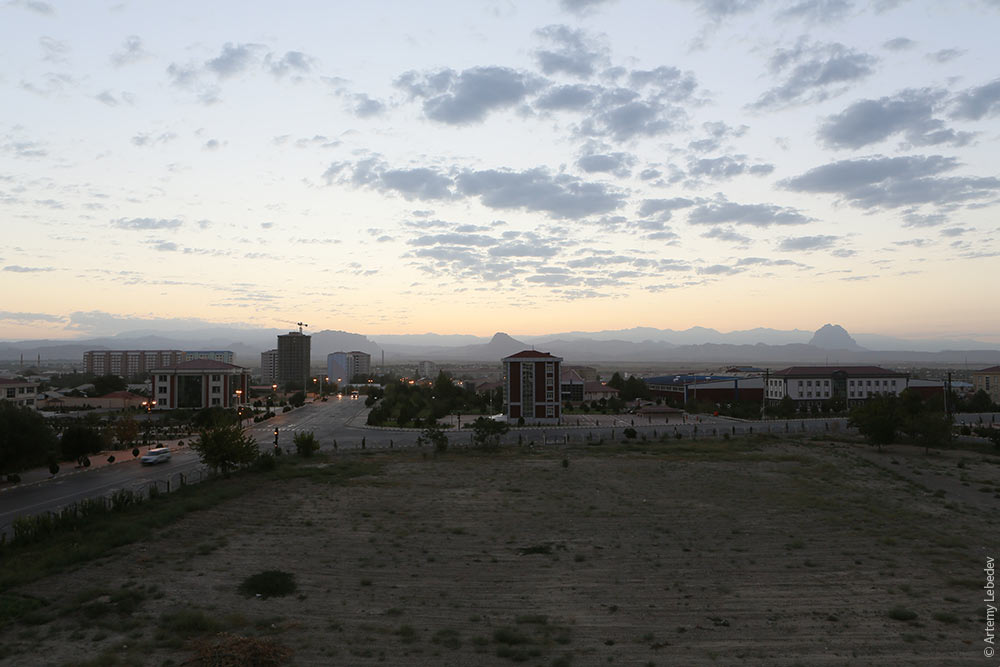 It has the same smooth roads. 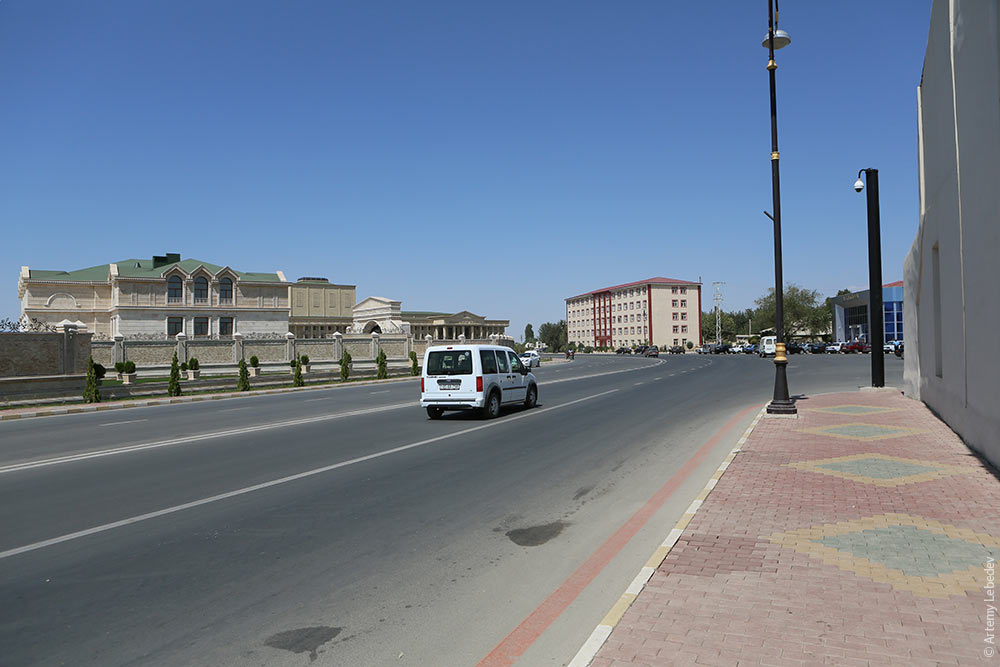 The same re-faced Khrushchev-era apartment buildings, turned into tidy impersonal boxes along the central streets. 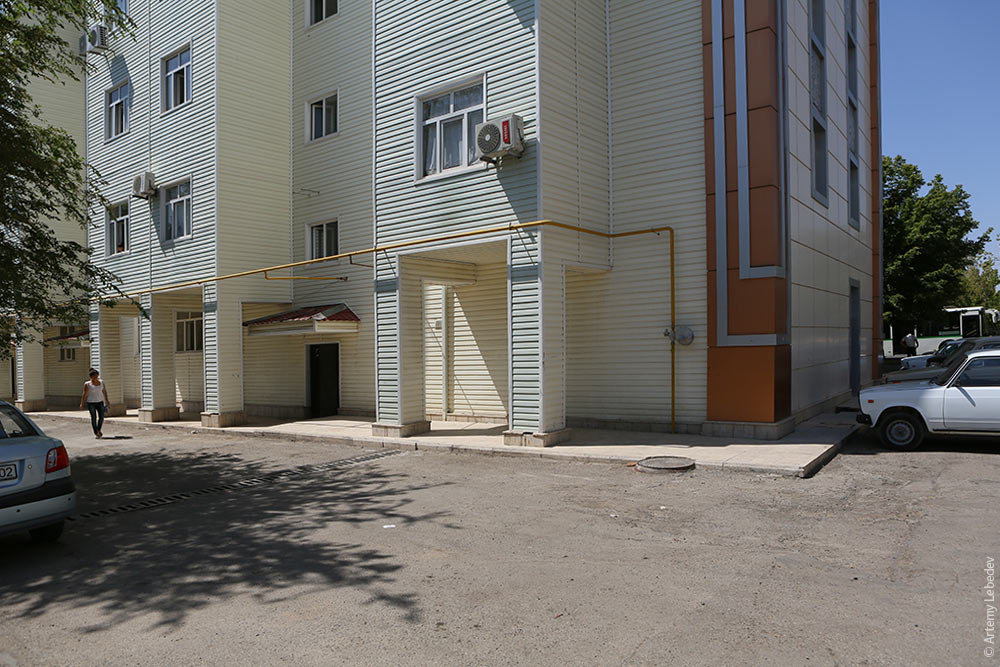 Oops, a piece fell off. Let’s pretend we didn’t see that. 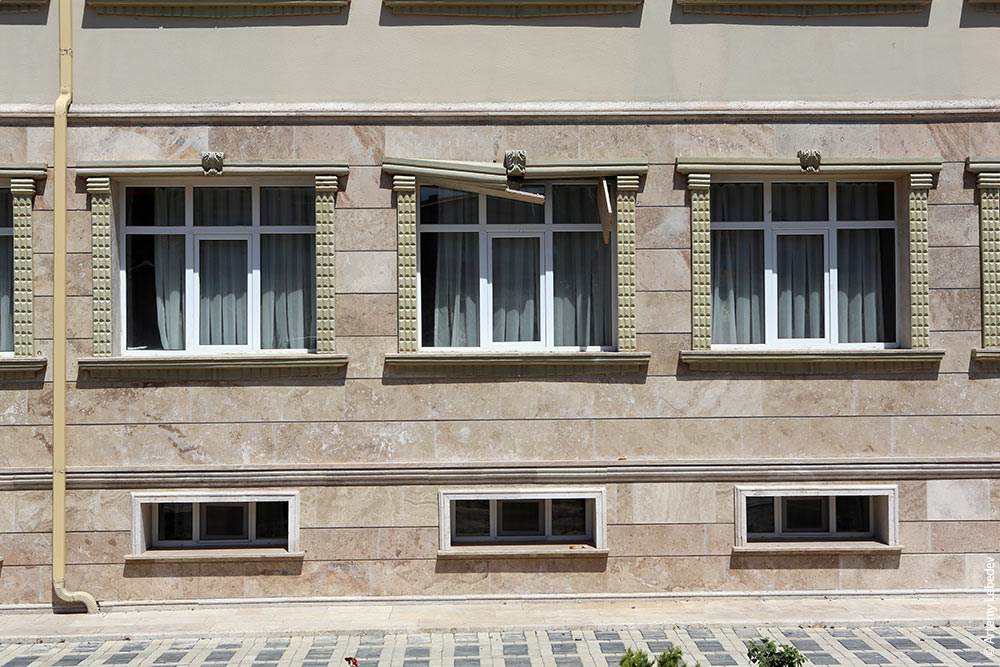 All the public buildings, from the airline ticket office to the museum of the president who was born here, look alike: tinted glass, a large sign in gold letters above the entrance. 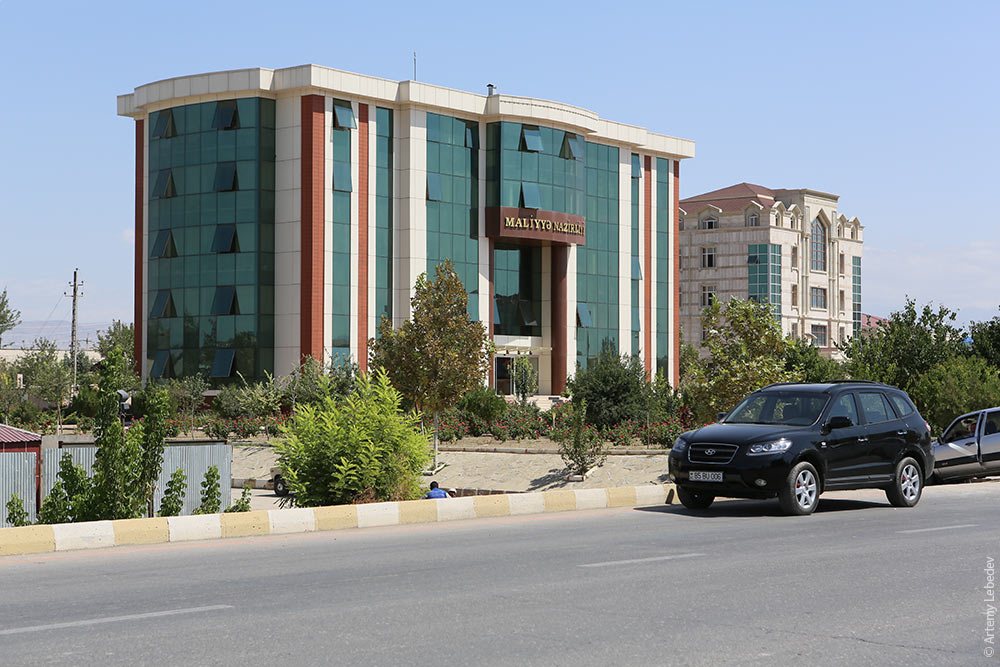 Everything is ploughed, irrigated and planted with little bushes. 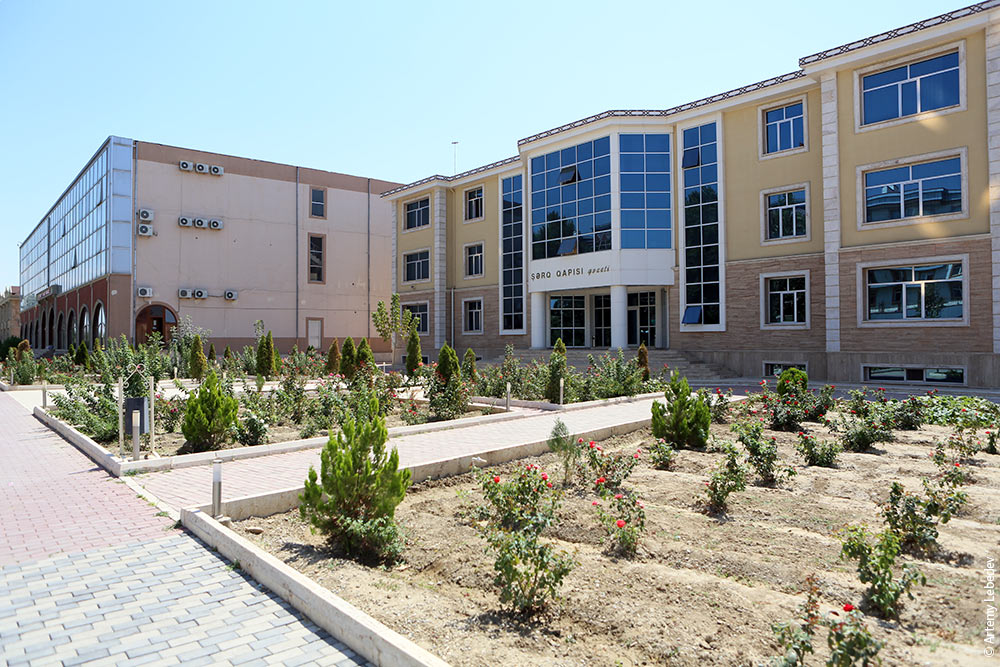 The city resembles a modern Chinese suburb: orderly, neat, soulless. 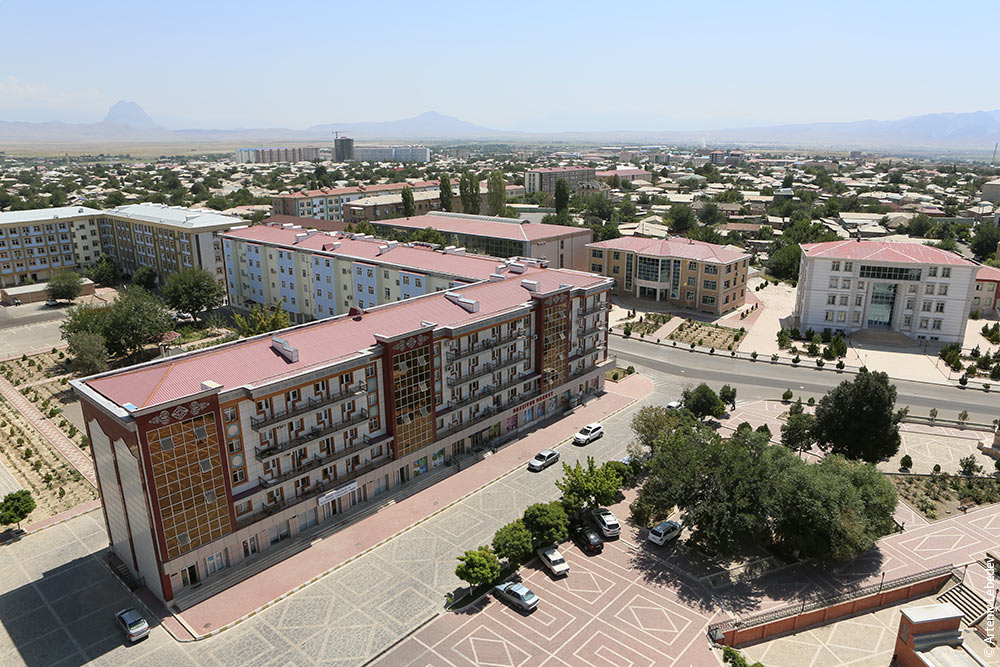 There are almost no real living details left. Soon they, too, will be covered up with siding and sandstone tile. 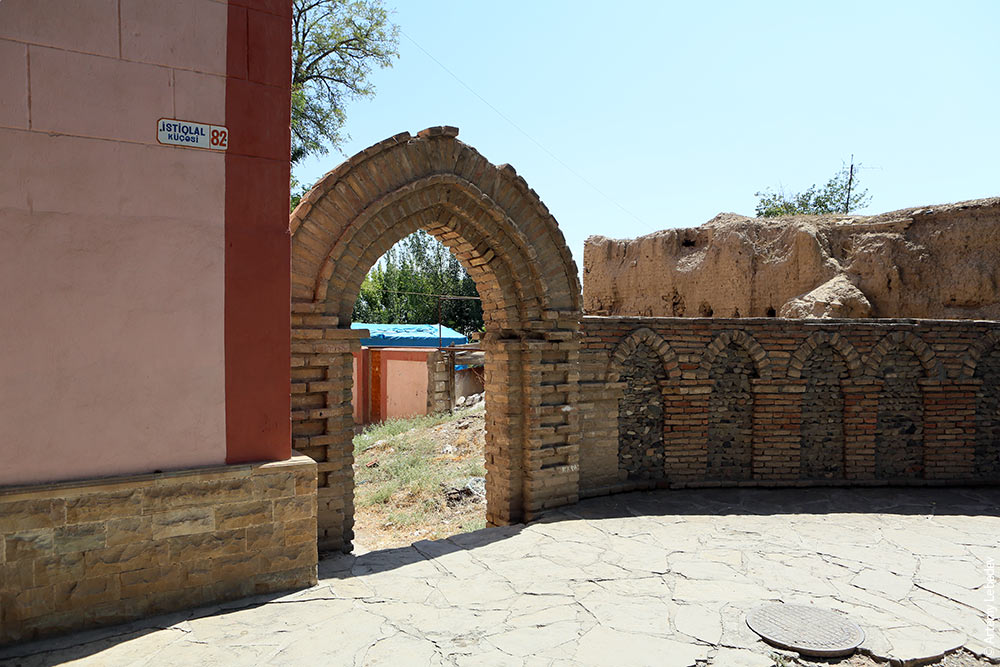 The end wall has been remodeled, the embossment was left untouched. 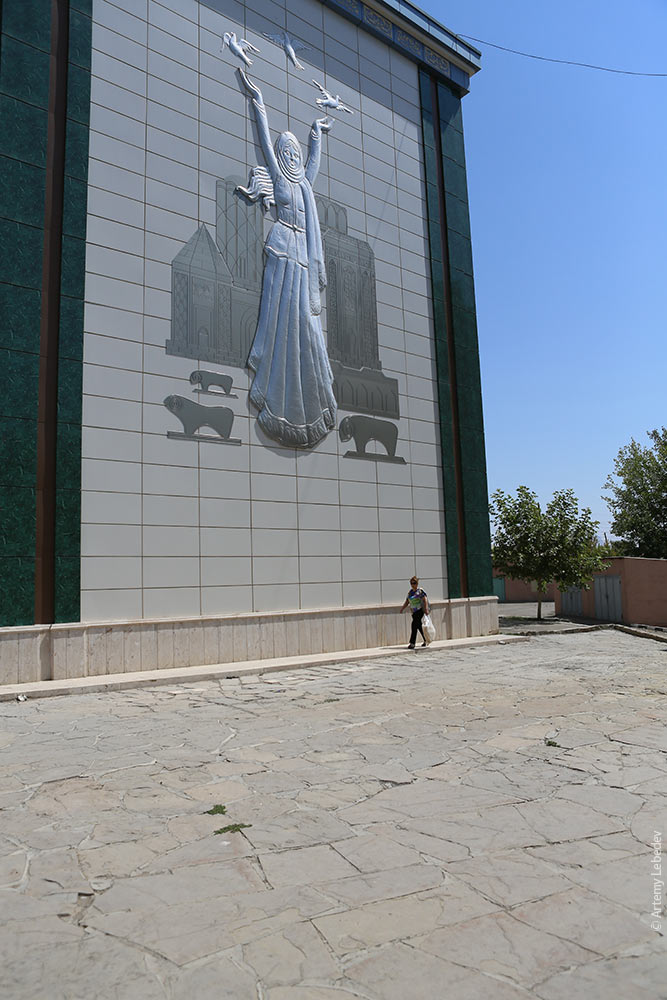 An old Soviet payphone (like in Tbilisi). 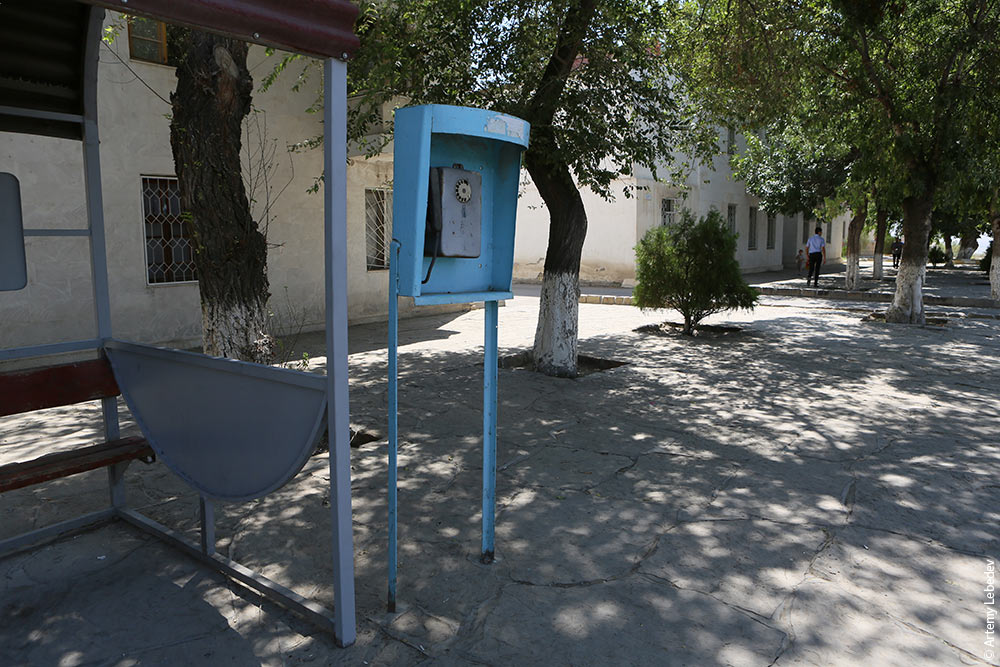 Trash dumpsters. 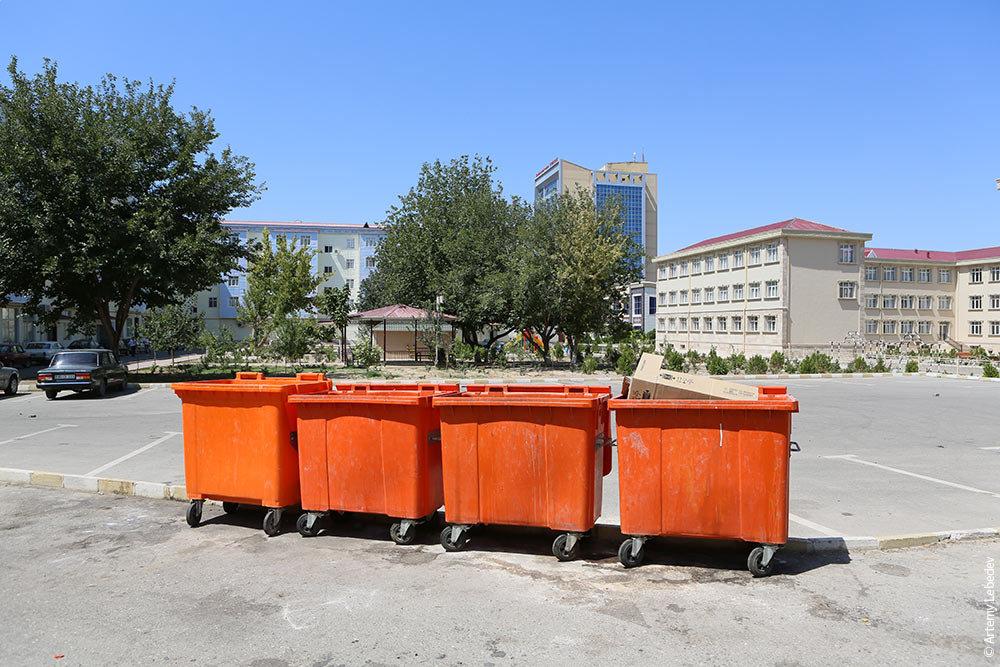 Front entrance address signs. 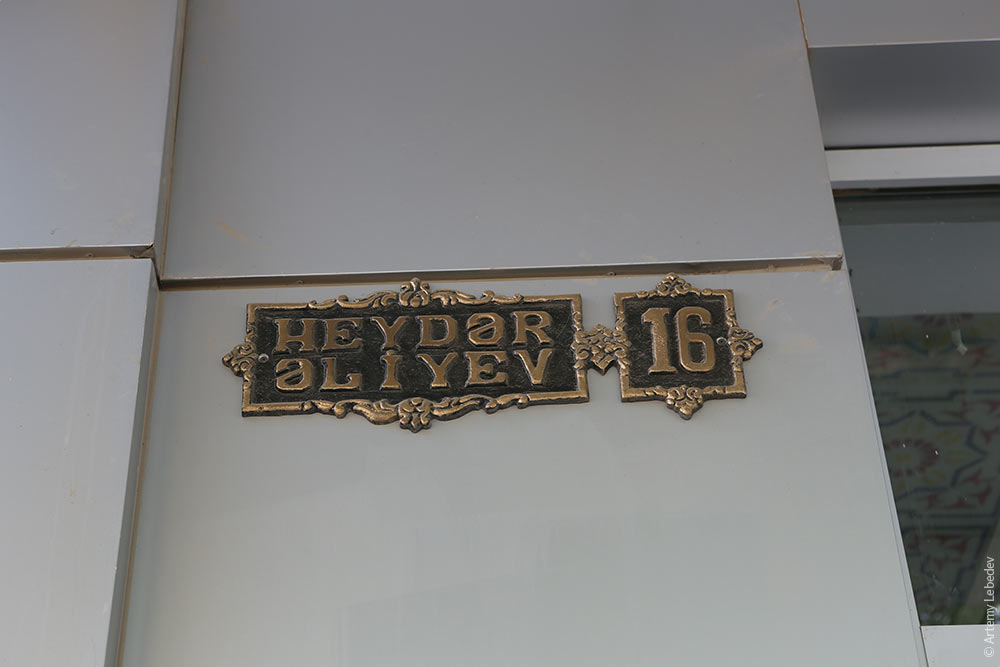 An advertising pillar. 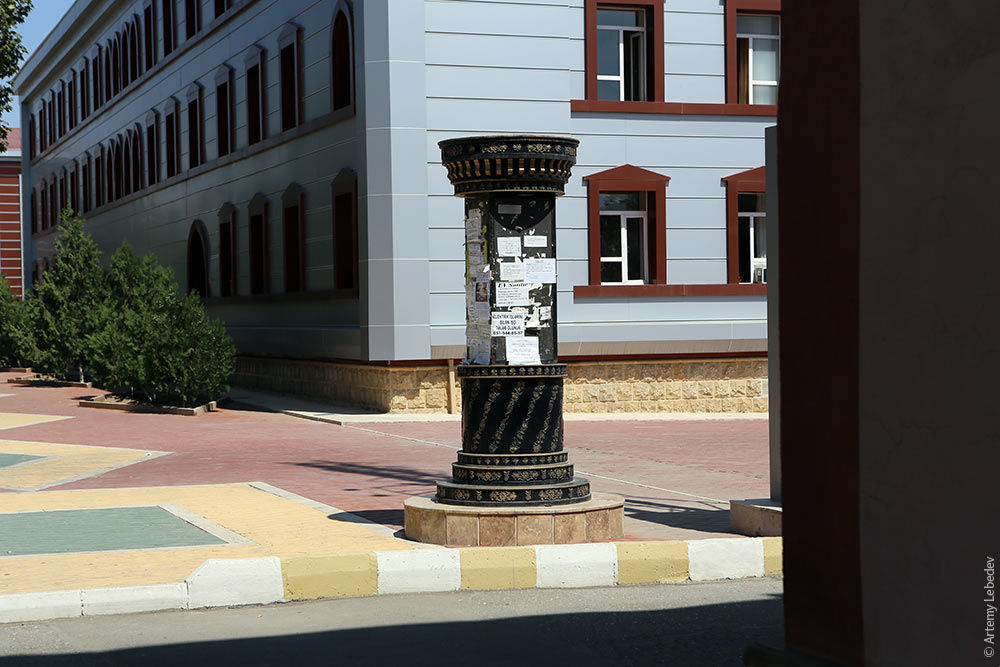 An alternate spelling of “design.” 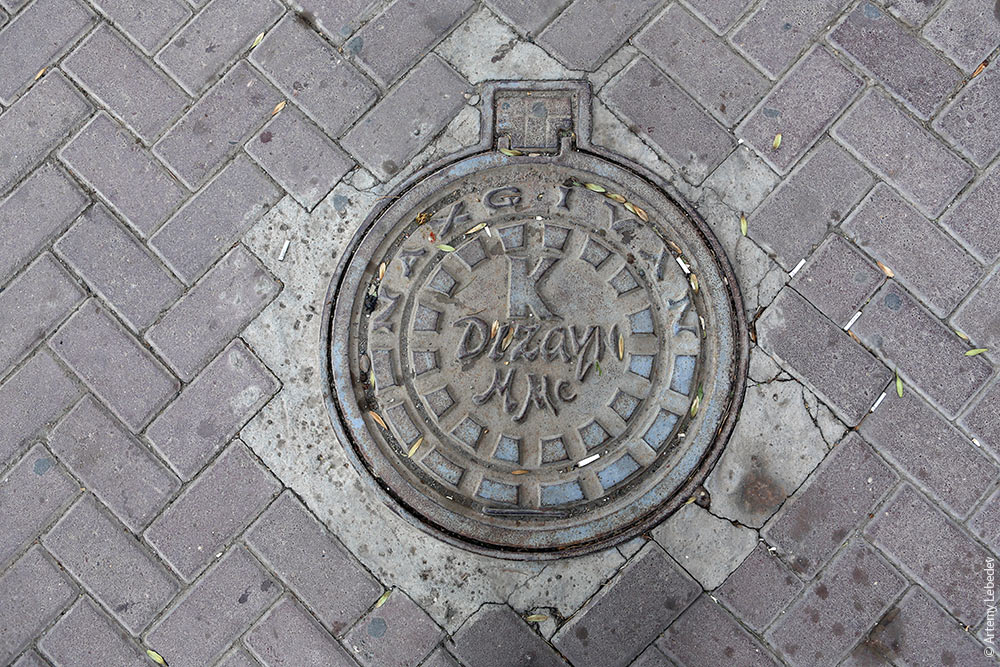 Every gas pipe has a round contraption attached to it. Some sort of Iranian-made fitting, it seems. 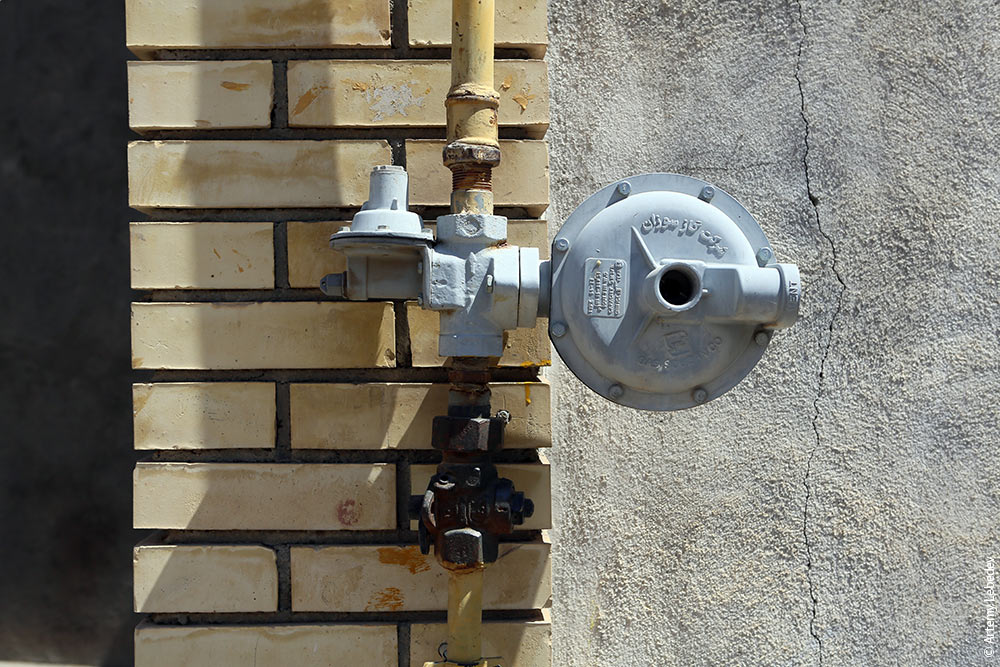 High voltage. 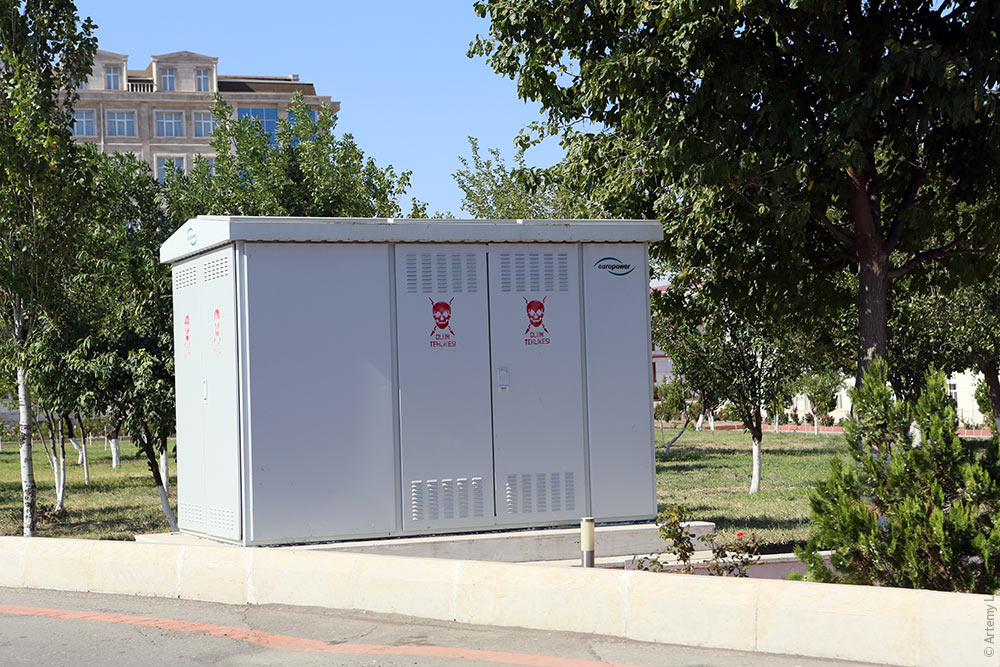 The outskirts. 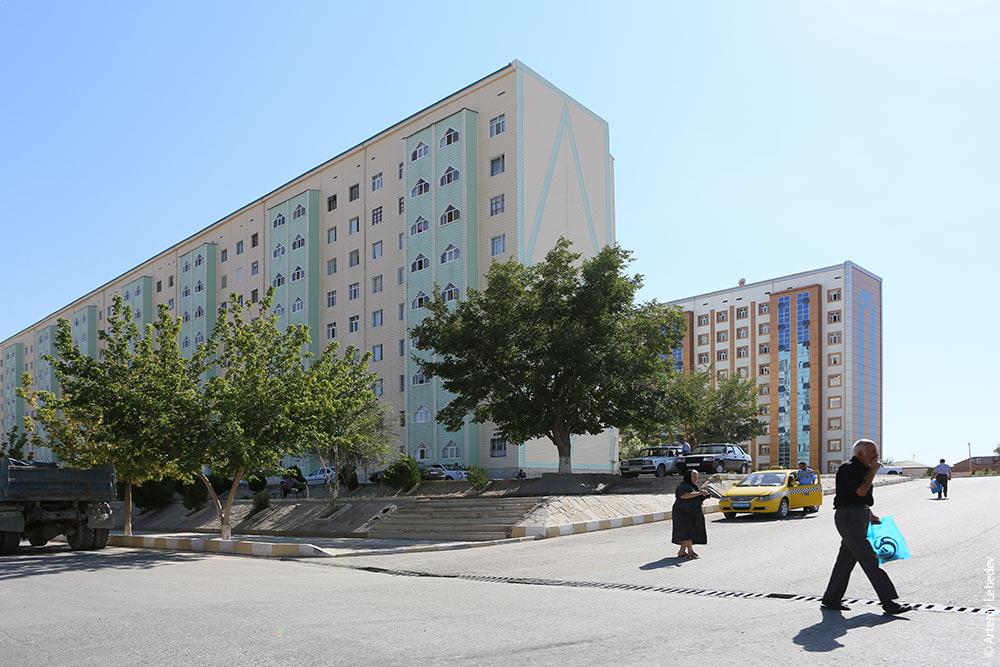 The unpolished outskirts. 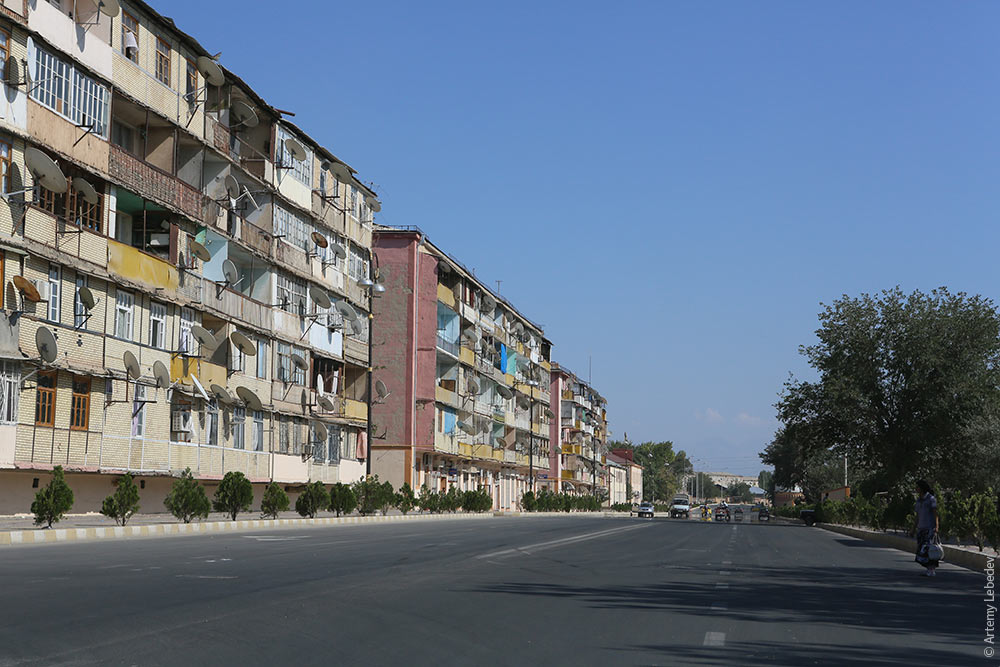 Satellite TV dishes. 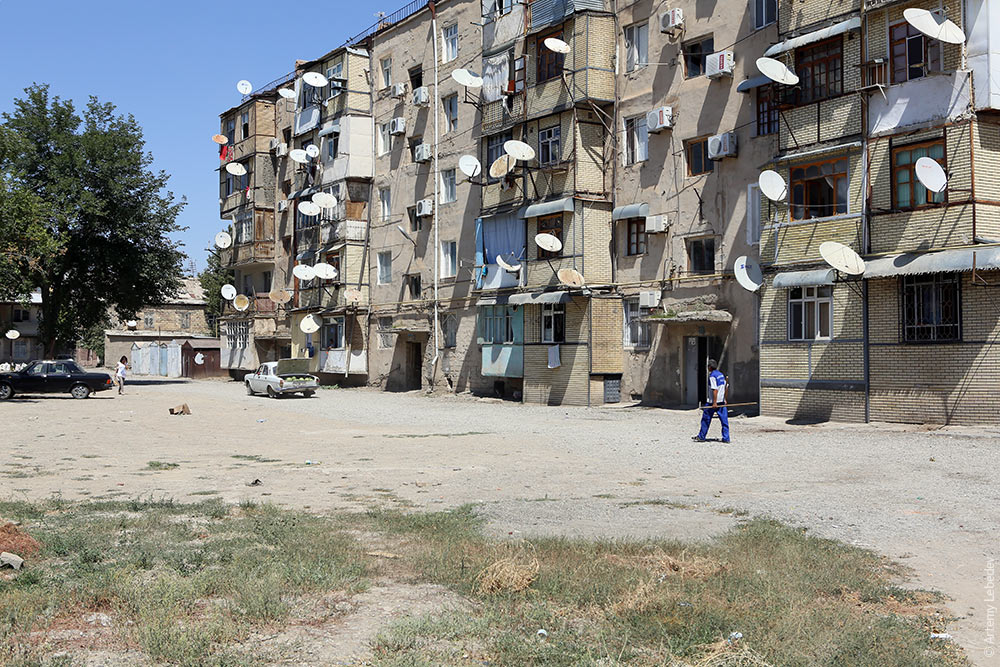 Like in Baku, it’s common practice to build on extensions to apartments here, their size limited only by how much one can afford. It doesn’t matter which floor the apartment is on. Upstairs and downstairs neighbors participate in the square footage expansion program to the best of their financial ability. 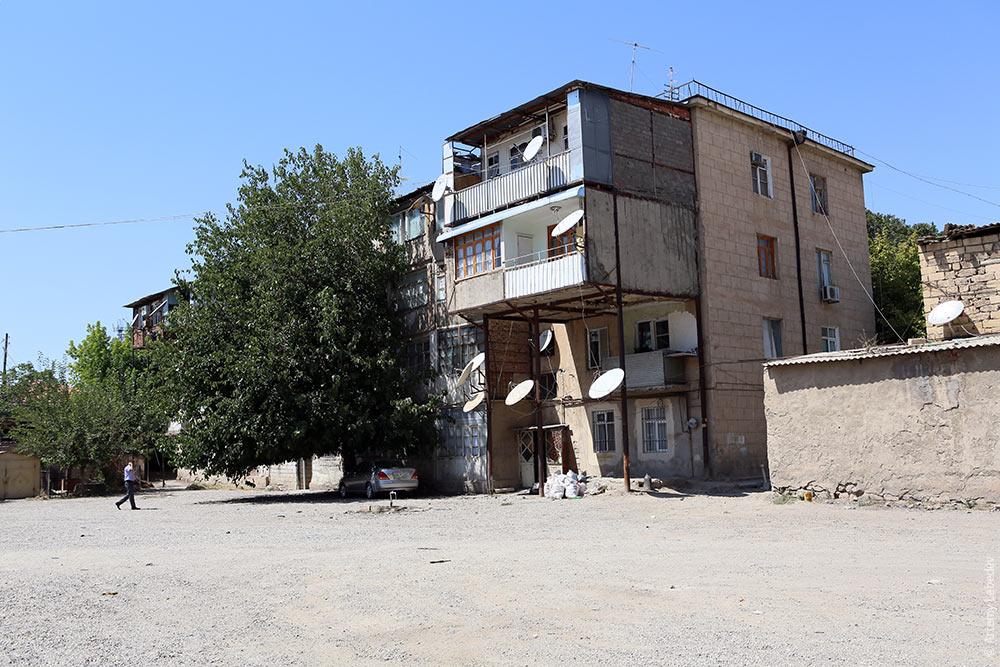 It’s interesting to note that all the traffic signs are also painted on the road surface. 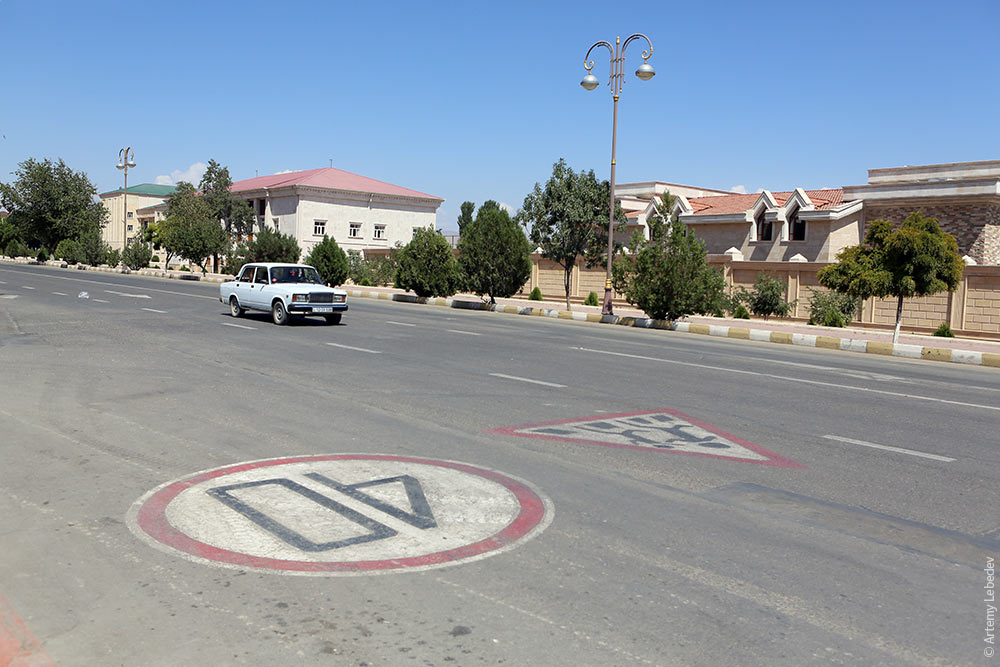 It’s also interesting that plastic bottles are used here to collect AC condensate, just like in Malé. 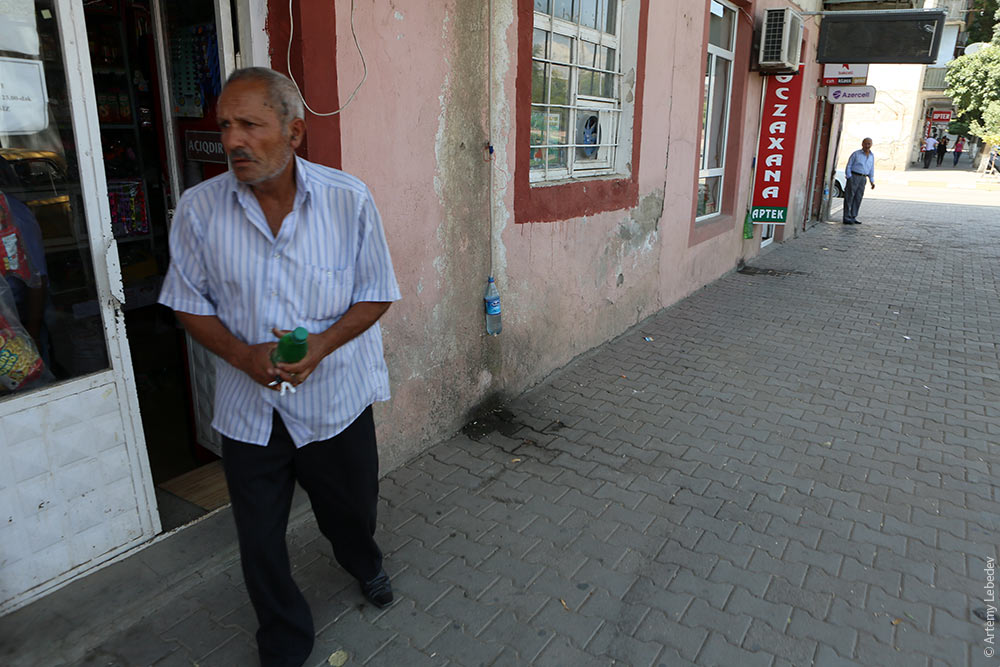 Unfortunately, at this point all the interesting things had run out. 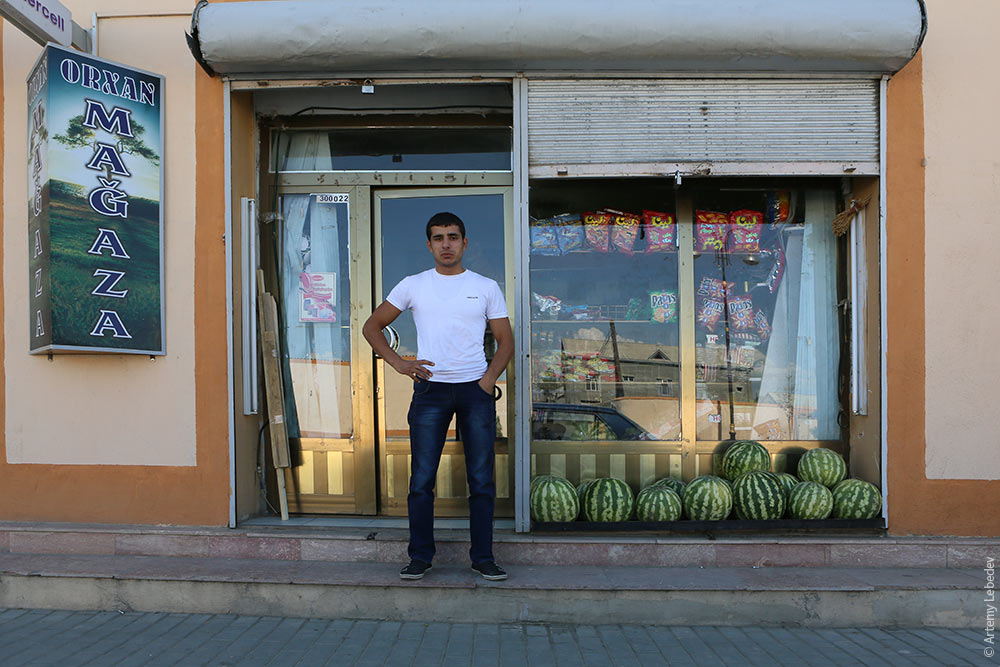 It was two in the afternoon. Finding nothing better to do, I went to see the lackluster local attraction. 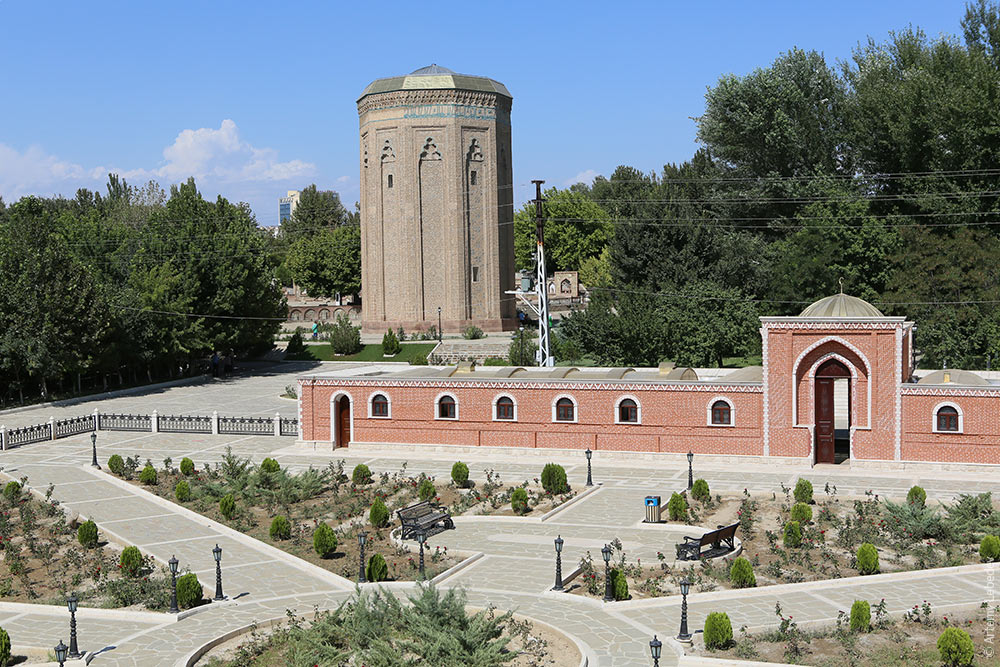 Drove up and down the city three times. 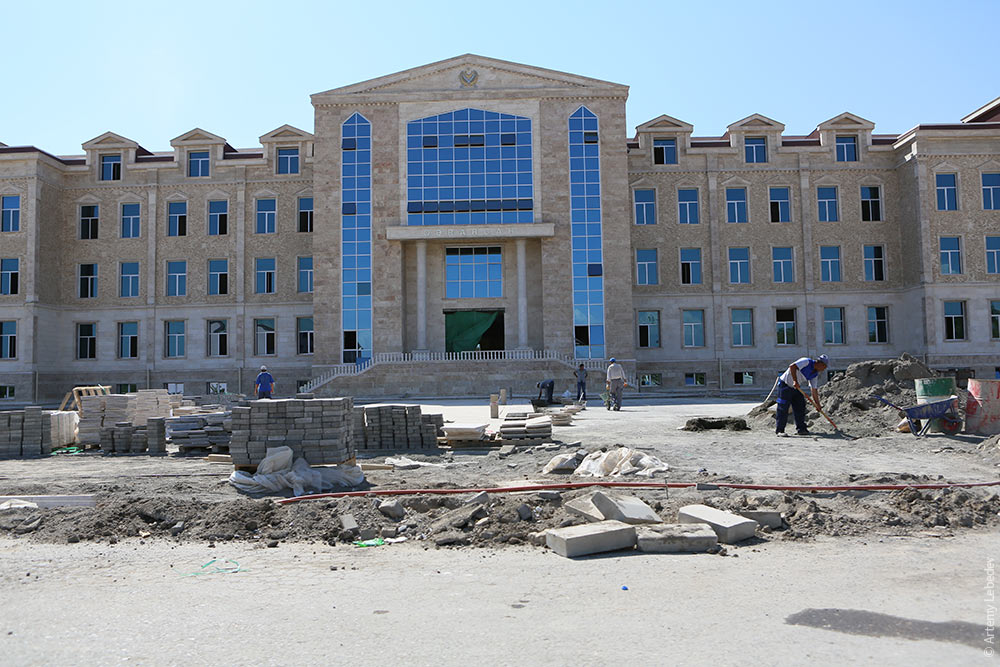 And realized I couldn’t bear to spend another day here. My return ticket was for the day after next, but I was already bored to tears. So off I went to the airline ticket office. There’s only one for all the airlines here. A hundred people were crowding to register for the queue outside; another hundred were waiting inside. I wasn’t able to get in at first; I received my three-digit number and sat down under a tree to wallow in my sorrow. 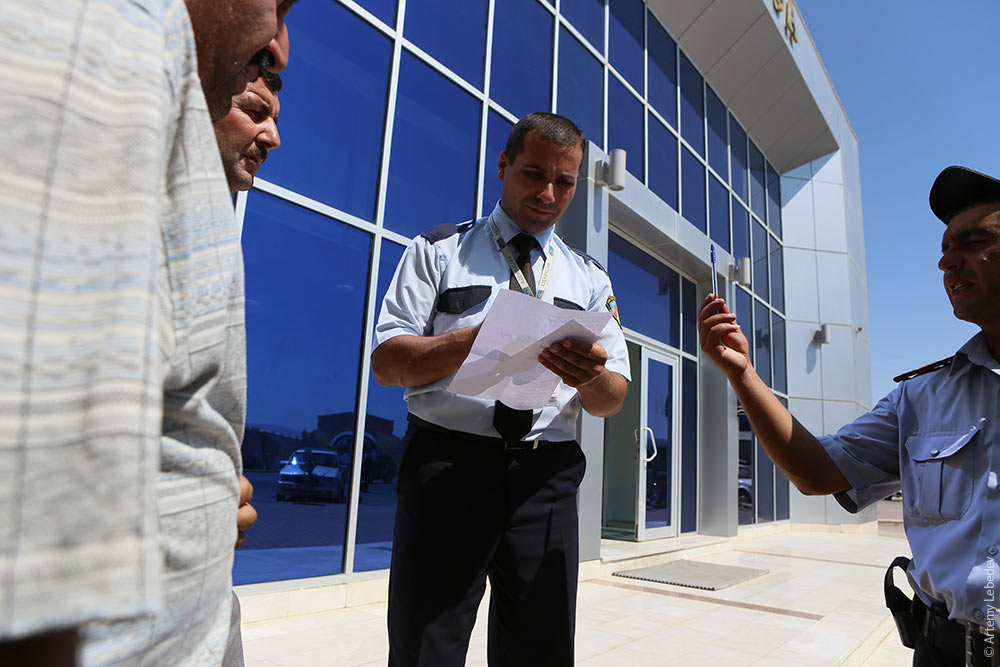 Kind people began to inquire about my troubles. I want, I said, to fly out today. So go up to the cops and tell them you need to leave today, they replied. I did—and it worked.
The system inside works like this: there are ten cashiers, each of whom is responsible for one destination. One sells tickets only to Moscow, another to Istanbul, a third to Baku. I ran around from one to the next until I found out that there were tickets to Baku available for that night. Anything, anything but Nakhchivan. |